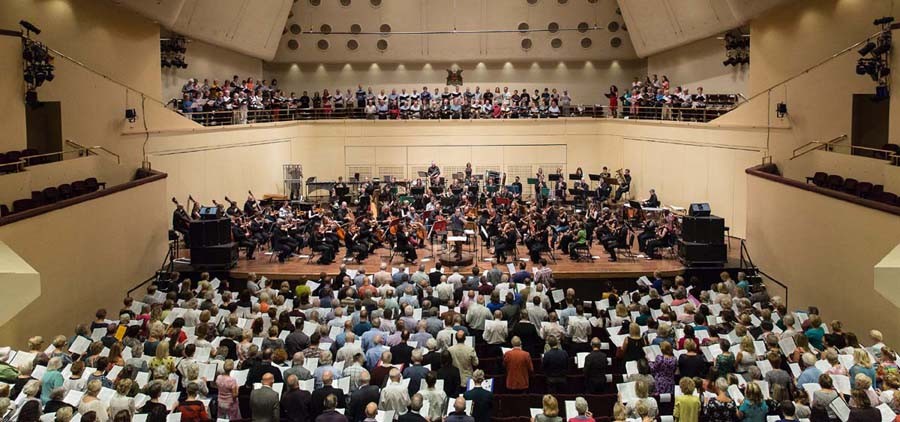
Is technology changing the nature of audience behaviour? Or is this behaviour specific to a particular culture, time and place?

As England played their matches in the World Cup soccer in Moscow, the fans back in Britain supported their side fully while being glued to their mobile phones. It so happened that they refused to switch off their phones even if they had gone for the evening to see a play in proper proscenium theatre hall. The match with Colombia clashed with a performance at Nottingham Theatre Royal last Tuesday.
This irritated the theatre establishment and also upset the actors. Used to pindrop silence, they found it difficult to cope with an audience that was two-timing and willing to share its attention between the play and their mobile phone screens. The members of the audience also gasped or raised their voices as the state of the match changed in favour or against England.
Actors have vented their fury at two audience members who watched England’s World Cup penalty shoot-out on their phones in the front row of a musical Titanic. The actor Niall Sheehy said the women "not only followed the penalty shootout on their phone, but also said ‘yesss’ on each goal scored". He told them, "You are the most ignorant audience members I have ever had the misfortune of performing in front of."
Is this a change that is more fundamental in character or is it just a momentary shift in attitude affected by soccer fever? We all know that the people in Europe and elsewhere are mad about soccer and their blood pressure shoots up with nationalistic or club sentiment while watching the progress of their team.
In the very cathedral of high art there seems to be insidious indications of the winds of change. The decorum of theatre and of classical music concerts is placed above violability and these activities are meant to be taken with high seriousness and any lapse in their set of rules means poor manners, low breeding and lack of class.
But the change is taking place everywhere, elsewhere. The pop concerts and the music festivals are an open-air affair with people not only singing and dancing but also wallowing in mud and slithering in grime to be fully exposed to the grand air of revelry which the event is supposed to promote or symbolise. Compared to all that is the classical music concert where the focus is on total silence, for even a fall of a feather can disturb the ambience and therefore result in the loss of complete receptivity.
Similarly, films were to be seen in an enclosed space and that too in darkness. The prime idea was to create conditions for total silence and concentration. All eyes and ears were supposed to be focused on the activity on screen and there was to be no alternative sources of either light or sound. The total impact was of prime importance and it could not be compromised upon. Similarly, the opera which in eighteenth/nineteenth century Europe was the epitome of civility and high culture was the place to be seen. The audience, particularly those sitting in the boxes with their opera glasses, turned out in their best finery, prided themselves on being the harbingers of high culture. As the singing and dancing continued on stage, the audience sat sobbing away, sighing at the turn of events on stage or spying on what was happening in other boxes, but in total silence or in hushed whispers. Sound was not to be heard, it was all a play of the eyes.
Compared to that, the music and theatre audiences here are the very opposite. The audience is listening to music but at the same time the gossip session is also in rage and everything under the sun is being discussed except the music that is being performed. And when the time comes for appreciation or "daad" it is also shot-out in the loudest of terms. The expression of appreciation too has to be flamboyant, and the more involuntary it is the more sincere it is seen to be.
Similarly, in the mushaira tradition too the daad is supposed to be fully expressed and, at times, the audience falls over each other to impress upon the poet how the verse has pierced their heart. In sheer appreciation the misra or the entire shair too is repeated aloud so as to establish an instant rapport between the poet and the audience. In qawwali, too, the same decorum is followed and if someone withholds his or her appreciation and is rather mute it is considered to be an expression of lack of appreciation or of indifference. It can also be taken for prudery and snobbishness. And then the ultimate sign of appreciation is the welling up of tears in the eyes, "riqqat taari ho jana".
Since the advent of VCRs, the ethos of watching films changed here. It is now part of an activity that can be controlled, replayed, restarted and stopped at will.
In the western tradition, at least till now, one was not supposed to applaud midway or at the phrase that had appealed but only at the very end of the number. Similarly, in theatre too, it is at the end that the play was appreciated, mostly at curtain call. Then the audience can express their desire and happiness by continuing to applaud and the members of the cast have to keep appearing time and again to take a bow every time in gratitude. This encore or the ritual of encore is an indication of the level of appreciation.
But obviously with the ingress of technology everything else too is changing and so are the etiquettes of viewing or watching a performance. A distinction may still exist between the pop and the high-brow - it could totally be eradicated any time with the changing tastes and attitudes especially among the young, even in the west.